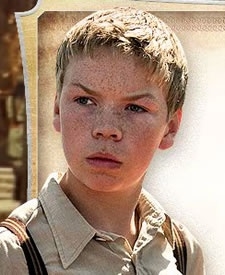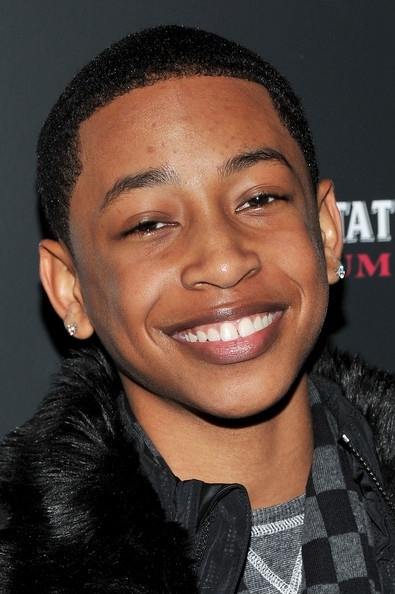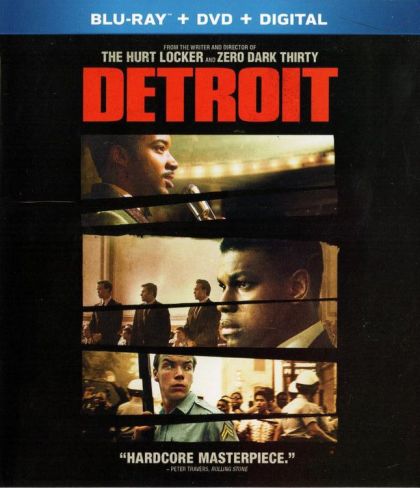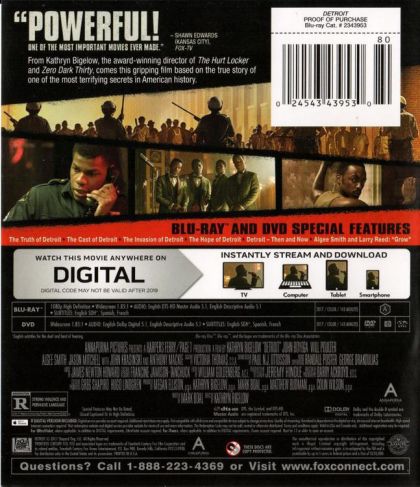A police raid in Detroit in 1967 results in one of the largest citizens' uprisings in the history of the United States.
Fact-based drama set during the 1967 Detroit riots in which a group of rogue police officers respond to a complaint with retribution rather than justice on their minds.
—Carl Schultz
A police raid in Detroit in 1967 results in one of the largest RACE riots in United States history. The story is centred around the Algiers Motel incident, which occurred in Detroit, Michigan on July 25, 1967, during the racially charged 12th Street Riot. It involves the death of three black men and the brutal beatings of nine other people: seven black men and two white women.
The true story of one of the most terrifying moments during the civil unrest that rocked Detroit in the summer of '67. Amidst the chaos of the Detroit Rebellion, with the city under curfew and as the Michigan National Guard patrolled the streets, three young African American men were murdered at the Algiers Motel. 50 years after the events of July 25th, 1967, the question remains: what happened at the motel?
—Annapurna Pictures
The race riots that occurred in the predominantly black Victoria Park neighborhood of Detroit in late July, 1967 are presented. The riots began on July 23 following a raid on an unlicensed after hours black club serving liquor in celebration for just returned black soldiers from the war. The confrontation between the black populace of the neighborhood and police escalated with increasing action on both sides, those actions including burning and looting in the neighborhood on the public side, and the setting of curfews and calling in the National Guard to assist by Michigan Governor George Romney. The movie focuses on a situation on the evening of July 25 in the Algiers Motel, where the authorities, led by the Detroit Police Department, were searching for a supposed sniper firing at the authorities, the motel which should have been a place of sanctuary away from riots happening outside the motel walls. The individuals at the motel that evening include the following. White DPD Officer Phillip Krauss has his own moral stance where he will do whatever required to exact his form of justice, which included the day before mortally shooting a black looter in the back as he was running away unarmed. That incident the day before colors the way Krauss now handles such confrontations. A singular white National Guardman on the scene knows the volatility of the situation based on the patrolmen's actions, but does whatever he can to keep those being interrogated alive while not stepping on the toes of the police. Melvin Dismukes is a black part-time security guard who does whatever he can to diffuse the situation all in an effort for the black populace to survive whatever given situation at the time. Larry 'Cleveland' Reed, the lead singer for the Dramatics, and his friend Fred Temple took refuge at the motel after a gig which could have been the Dramatics big break was canceled at the last minute due to the riots, which left them outside after curfew. Carl Cooper, a resident at the motel, wanted white people to feel the fear black people felt every day at the hands and more specifically guns of the police. Greene, a black man, is a recently decommissioned soldier, who is solely in Detroit trying to find a job. And Julie Ann and Karen are two young white women from Ohio staying at the motel, they who have no issue in partying with the predominantly black residents and other guests at the motel.
—Huggo
On July 23, 1967, the Detroit Police Department staged a raid on an unlicensed club during a celebration for returning black veterans from the Vietnam War. While suspects are being arrested, a mob forms and starts throwing rocks at the officers before looting nearby stores and starting fires, beginning the 12th Street Riot. With state authorities, elected representatives, and even emergency services unable to maintain any semblance of order, Governor George W. Romney authorizes the Michigan Army National Guard and President Lyndon B. Johnson authorizes Army paratroopers to enter Detroit in order to provide assistance. On the second day of rioting, two cops pursue a fleeing looter. One of them, Philip Krauss, kills the man with a shotgun against orders, but is allowed to remain on duty until his superiors can decide whether to file murder charges.
1967. The police and black inhabitants of Detroit seem perpetually in a state of conflict, largely due to the police's biased, heavy-handed attitude towards African-Americans. This comes to a head when the police raid an unlicensed black club, causing the local residents to riot. The State Police and National Guard are called in and Detroit starts to resemble a war zone. On a fateful night, the local police round up some suspects at the Algiers Motel in connection with (what they believe is) sniper fire. The police handling of the situation soon gets out of hand.
—grantss
SYNOPSIS
The film opens with an animation and text depicting the Great Migration during World War I. After World War II, African Americans had been moved to segregated communities, including Detroit, which contained a mostly white police force. Change was inevitable. It was only a matter of how, and when.
Detroit, 1967
A party is being held in a speakeasy for a couple of G.I.'s returning from the Vietnam War. All the guests are African American. Police raid the place due to the place not having a valid liquor license. They bring the guests out into the streets to make their arrests public, leading to a crowd of angry African American onlookers to begin protesting. Once all the guests have been rounded up, one man throws a glass bottle at an officer. Some people in the crowd then proceed to rob a store, thus beginning the 12th Street riots.
Congressman John Conyers (Laz Alonso) addresses the citizens in his community to try and handle the situation involving the police.
The National Guard arrives to patrol the streets of Detroit as the riots continue. One little girl looks out her window to see what is happening. An officer mistakes her for a sniper, leading to the other men to blast through the window.
Three patrolmen - Krauss (Will Poulter), Flynn (Ben O'Toole), and Demens (Jack Reynor) - drive through the streets as the chaos is happening. They find one black man, named Leon (Tyler James Williams), stealing from a grocery store. Krauss and Flynn chase after Leon. Krauss aims his shotgun at Leon and shoots him in the side. Leon manages to hop a fence and make it to the home of a woman down the street from his house. He lays under her car and asks the woman to get his wife. Police later find Leon dead.
Krauss' superior, Detective Tanchuck (Darren Goldstein), meets with him following the incident with Leon. Tanchuck chastises Krauss for using a gun on an unarmed individual. Krauss tries to play it up by saying MAYBE Leon killed someone during the robbery.
Security officer Melvin Dismukes (John Boyega) watches as an officer harasses an African American teenager. Dismukes goes over to pretend the boy is his nephew to help him on his way home. The boy makes rude remarks to Dismukes, who hits back that if he were to try anything, the other officers would be all over him.
Meanwhile, a young man named Fred (Jacob Latimore) arrives at a theater to join his group, The Dramatics, who are performing after Martha and the Vandellas. The guys are eager to perform before the equally excited crowd, only for an officer to show up to tell the manager that they need to evacuate everyone due to the rioting going on outside. Despite the group's protest, everyone is forced to leave. The group's lead singer, Larry (Algee Smith), starts to sing by himself onstage with nobody but Fred to listen to him.
Larry and Fred ride a bus and head to the Algiers Motel to stay the night. They are placed in a room by the annex. They go to the pool where they meet two white women, Julie (Hannah Murray) and Karen (Kaitlyn Dever). Larry proceeds to flirt with Julie. The ladies invite the guys to another room.
Upon entering the room, the guys meet Carl (Jason Mitchell), Lee (Peyton Alex Smith), and Aubrey (Nathan Davis, Jr.). Carl is dismissive of Larry and Fred. Larry starts to hook up with Julie while Carl cooks hot dogs. They proceed to discuss the ongoing situation in the streets and how the police are dealing with other African Americans. Carl takes out a small pistol and pretends to interrogate Lee. Lee appears nervous and tries to grab the gun from Carl, only for Carl to shoot him. Everyone freaks out, only for Lee and Carl to start laughing, as it was a toy gun. Larry, Fred, and the ladies all go back to their rooms.
Carl sees police officers a few streets down. He intends to scare them with the gun. He shoots in their direction, leading the police to panic and think they are being fired upon. The police and a few sergeants head down to the Algiers and start firing into the rooms before the patrolmen enter the motel. Carl tries to run, only to get shot by Krauss. Krauss then plants a knife next to Carl as he bleeds out and dies. When Dismukes shows up to the scene, Krauss lies and says that Carl tried to attack him with the knife while trying to go for his gun.
The patrolmen round up Larry, Fred, Aubrey, Lee, Julie, Karen, and another man named Greene (Anthony Mackie). The officers force them up against the wall to get them to say who shot at them, who has the gun, and where it is. Everyone is scared and all of them deny knowing anything about the gun. Krauss and Flynn begin to brutally beat the black men while Flynn hits Julie in the head with the butt of his rifle. Krauss leads the interrogation and orders everyone to start praying. He takes Lee into the room with the threat of shooting him if he doesn't tell them what they want to hear. Krauss fires a round next to Lee's head and orders him to stay still and be quiet, or the next shot is for real. A sergeant does the same with Greene.
Michigan state police show up as this goes on. They decide to let the patrolmen take this case.
Krauss and Flynn grab Julie, Karen, and Greene to interrogate them in another room. Julie is constantly accused of being a prostitute, and Greene is accused of being a pimp. Greene says he is a veteran from the Vietnam War, though Krauss continues trying to disprove this even after Green shows him his card.
The officers are alerted to commotion going on from outside. Larry and Fred attempt to escape, only to find more officers and sergeants approaching, forcing them to return to the wall. When the officers return, Krauss lets Demens take Aubrey into a room to play their little game. However, Demens isn't aware that this was a game, and he shoots Aubrey for real. Krauss comes in and sees this and becomes worried. He tells Demens to come up with a story of how Aubrey reached for his gun. They then get Larry and tell him he can leave if he never speaks of what he saw. Larry runs away without a word. Fred is brought in next, but when he doesn't comply with Krauss, he shoots Fred twice before Flynn blasts him with a shotgun. Meanwhile, a sergeant lets Lee get away.
Larry runs until he comes by another police officer, who sees how banged up he is. The man helps Larry into his squad car and takes him to the hospital.
In the aftermath of the motel incident, Aubrey's family is informed of his death. His father gathers his son's belongings and heads to the morgue to identify Aubrey's body.
Dismukes is found by police at his warehouse job and brought in for questioning since he has been named a suspect in the motel incident. Two racist police detectives, Thomas (Chris Coy) and Jones (Dennis Staroselsky), interrogate him and suggest he used his revolver to carry out the murders. Dismukes provides a contradictory account of that night, and he is briefly incarcerated.
At the police station, Demens and Flynn admit to Tanchuck over what really went down at the motel. When Tanchuck is ready to talk to Krauss, he tries to get away, only for Tanchuck to find him and threaten him.
The Dramatics visit Larry in the hospital. Fred's brother is there to ask what happened to Fred. Larry confirms the police most likely killed Fred.
Meanwhile, Krauss is being interrogated by Thomas and Jones over the incident, but he is pulled out by his attorney, Auerbach (John Krasinski).
The patrolmen are put on trial for the incident. The surviving victims all give testimonies and directly place blame on the officers involved. Auerbach presses everyone at the stand, leading at least one of them to get angry and shout obscenities. The racist, all-white jury finds the patrolmen not guilty of assault or murder. The result is enough to make Dismukes vomit.
The Dramatics get a record deal, but Larry no longer wants any part of it after all he's been through. He takes a small job as a church choir director since all the clubs in the area are patrolled by officers. Larry is then seen directing the choir.
The final text states that Melvin Dismukes left Detroit following multiple death threats, and he has worked security for places like Sears Roebuck. The three officers were found not guilty, but a case was filed against one of them and they were forced to pay a $5,000 settlement to the family of Aubrey Pollard. Fred Temple's family sued the city of Detroit for a wrongful death, though the city would not admit guilt. Carl Cooper's gun was never found. Julie Ann Hysell never returned to Detroit. She now has four children and works as a hairdresser. The Dramatics continue to perform to this day, but Larry Cleveland Reed never rejoined the group. He still works as a choir director.





























 English
English  Nederlands
Nederlands  Deutsch
Deutsch  Français
Français  Español
Español  Magyar
Magyar  српски
српски  Dansk
Dansk  Italiano
Italiano  Svenska
Svenska  Slovenčina
Slovenčina  Português
Português 



